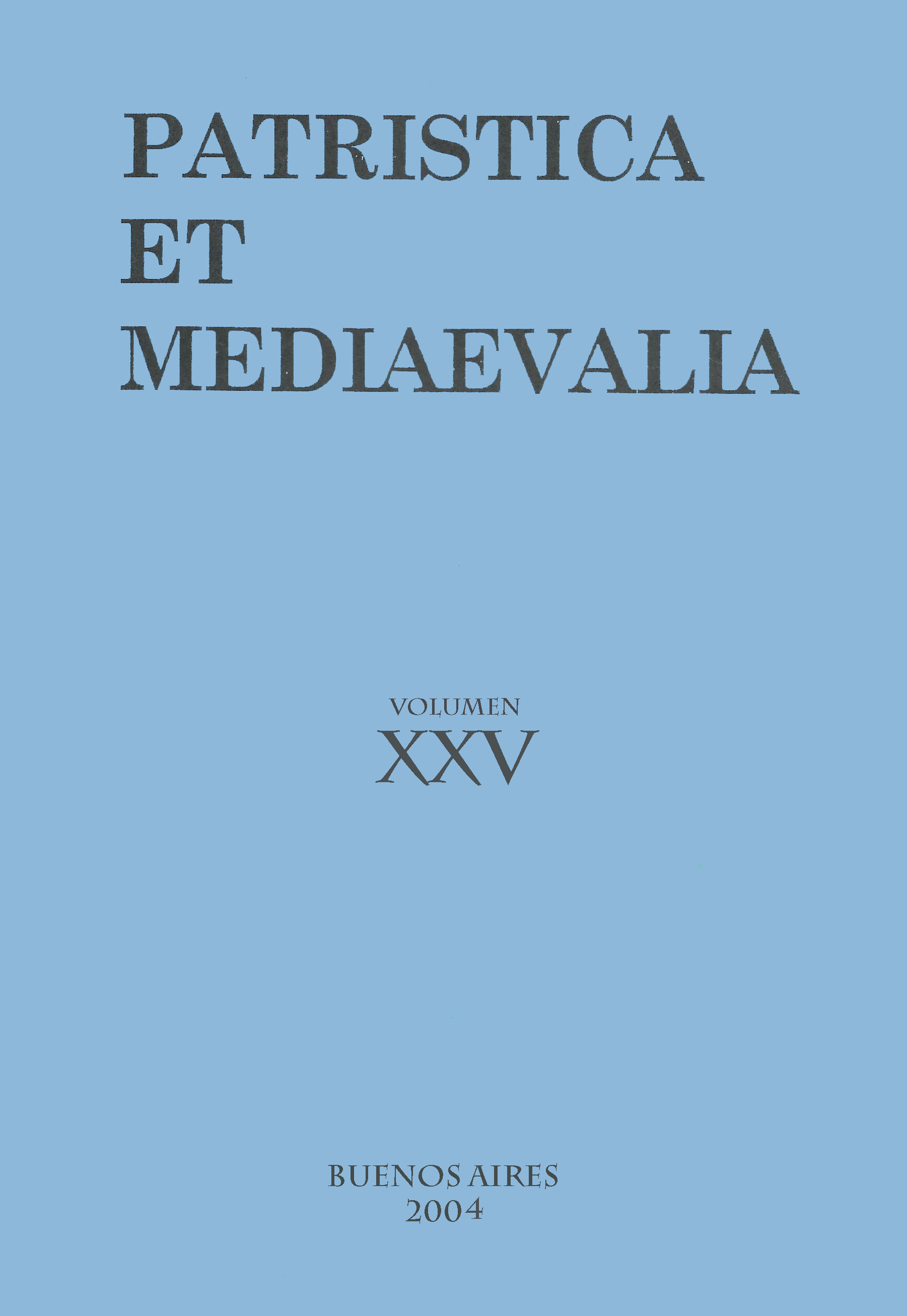Bonaventure: the Transcendentals of Being and Divine Causality as Ontological Ground
Abstract
The three metaphysical causes of the contingent world, i.e. efficient, exemplar and final cause, are considered by Bonaventure strictly as the ontological ground of all substances in the created world as well as transcendental attributes of God. Departing from the idea of Being as such of metaphysical constitutive of the divine essence, this paper deals with the connections between transcendental causes considered as ontological principles and the theological theory in which these principles are at the same time attributive perfection in the Christian idea of a trinitarian God. So, they are submitted in a correlative concordance between the three divine Persons: God the Father as efficient cause, God the Son as exemplar cause and God the Holy Spirit as final cause. Finally, there is an explanation on the concept of analogy which is considered by Bonaventure from the created world up to God as well as from God to the world.Downloads
References
Billot, L. (1926). De Deo uno et trino. Roma: Universitate Gregoriana.
Garrigou-Lagrange, R. (1936). Dieu, son existence et sa nature. Paris: Gabriel Beauchesne et ses Fils.
Bissen, J. M. (1929). L’exemplarisme divin selon Saint Bonaventure. Paris: Vrin.
Gerken, A. (1963). Theologie des Wortes, Das Verhältnis von Schöpfung und Incarnation bei Bonaventura. Düsseldorf: Patmos Verlag.
Gilson, E. (1954). La philosophie de Saint Bonaventure. Paris: Vrin. First edition: 1924.
Hayes, Z. (1964). The General Doctrine of Creation in the Thirteenth Century. München: Schöningh.
Honnefelder, L. (1987). Der Zweite Anfang der Metaphysik, Voraussetzungen, Ansätze und Folgen der Wiederbegründung der Metaphysik im 13./14. Jahrhundert. En Beckmann, J. P. et al (eds.). Philosophie im Mittelalter; Entwicklungslinien und Paradigmen. Hamburg: Meiner, 165-186.
Mathieu, L. (1967). Introduction. En Mathieu, L. Breviloquium, la Trinité de Dieu par saint Bonaventure, texte latin de Quaracchi et trad. française, intro. et notes par Luc Mathieu. Paris: Éditions Frnaciscaines.
Ratzinger, J. (1959). Die Theologie des Dionys im Werke Bonaventuras. En Ratzinger, J. Die Geschichtstheologie des Heiligen Bonaventura. München: Schnell & Steiner,
Rivera de Ventosa, E. (1954). La metafísica del Bien en la teología de San Buenaventura. Naturaleza y Gracia, 1, 7-38.
Von Balthasar, H. U. (1986). Gloria, Una estética teológica, tomo 2. Madrid: Encuentro.
1. The authors who publish in this magazine accept the following conditions:
-
They retain the copyright and grant to the magazine the right of the first publication, with the work registered under the Attribution-ShareAlike 4.0 International License that allows third parties to use what is published as long as they mention the authorship of the work and the first publication in this magazine.
-
They can make other independent and additional contractual agreements for the non-exclusive distribution of the version of the article published in this magazine (eg. include it in an institutional repository or publish it in a book) provided that they clearly indicate that the work was first published in this journal.
-
They are allowed and recommended to publish their work on the Internet (for example on institutional or personal pages).
2. AutoArchive Conditions. Authors are allowed and encouraged to distribute post-print electronic versions of their manuscripts because it promotes their circulation, a possible increase of quotation and a major reach among the Academic community. Color RoMEO: blue.













